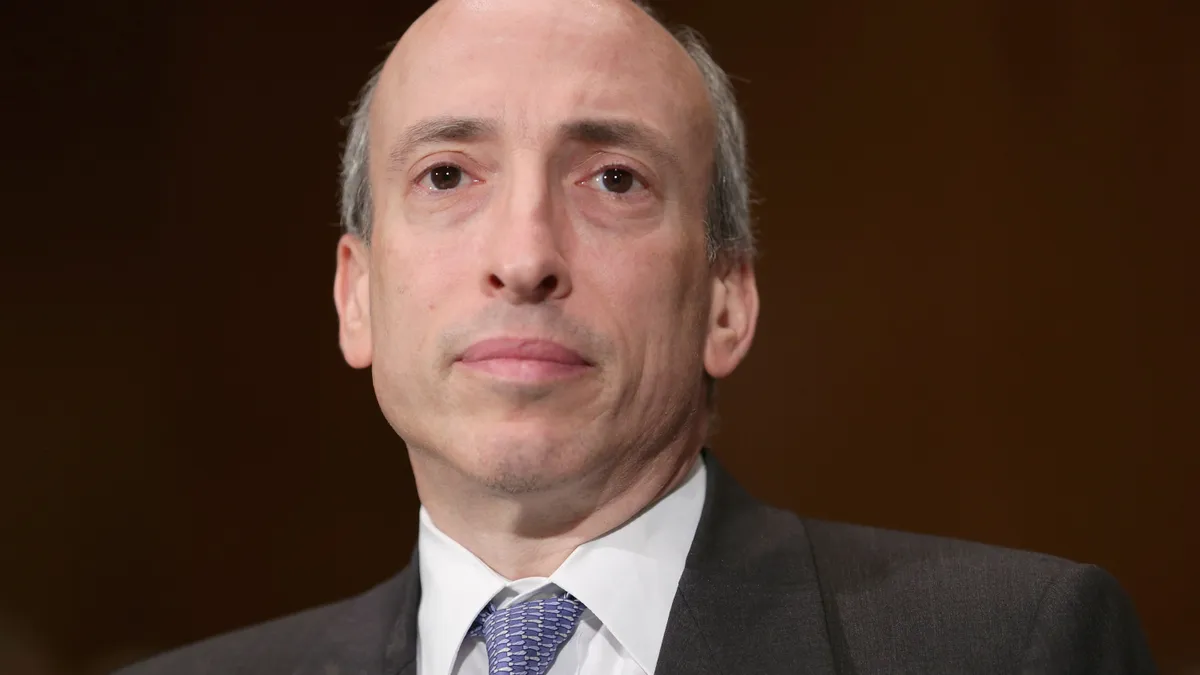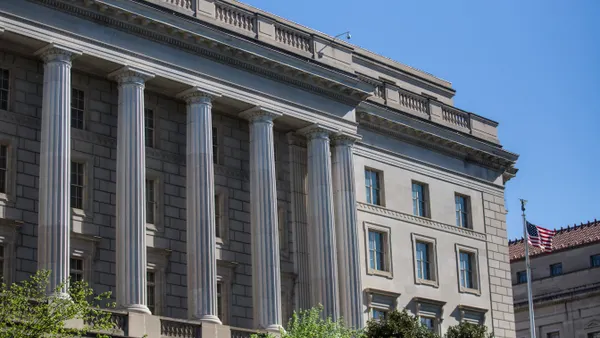Dive Brief:
- Securities and Exchange Commission (SEC) Chair Gary Gensler aims to revise rules altered by the Trump administration and strengthen the incentives offered to whistleblowers to expose financial wrongdoing.
- A proposal announced on Thursday would eliminate the SEC’s authority to consider reducing a potential reward while allowing consideration of an increase. In addition, the SEC could pay whistleblower awards for actions brought by other agencies such as the Justice Department.
- The amendments “would help ensure that whistleblowers are both incentivized and appropriately rewarded for their efforts in reporting potential violations of the law to the commission,” Gensler said in a statement.
Dive Insight:
Whistleblowers during the fiscal year ending Sept. 30 provided the SEC with 12,200 tips of securities markets wrongdoing — a record since the program was authorized in 2010 under the Dodd-Frank Act. The Wall Street watchdog awarded 108 of the tipsters a total of $564 million, also a record.
“Whistleblowers provided a critical public service and duty to our nation, taking personal and professional risk in doing so,” Gensler said. Their information since inception of the program has identified more than $1.3 billion in ill-gotten gains that will be — or are scheduled to be — returned to investors.
One proposed rule change aims to ensure a whistleblower is not disadvantaged by the award from an agency with a program less generous than that of the SEC, Gensler said.
The second rule change, allowing the commission only to increase an award, “would give whistleblowers additional comfort knowing that the SEC could consider the dollar amount of the award only in such cases.”
The SEC program awards individuals who provide original information that leads to a SEC enforcement action resulting in sanctions exceeding $1 million. Awards equal 10% to 30% of the sanctions collected.
SEC Commissioner Hester Peirce objected to the proposed changes, noting that the commission adopted the underlying rule as recently as Sept. 2020. “There is no new information that compels reopening the recently adopted rules,” she said.
“Absent some pressing need to remedy inadvertent oversights, address unanticipated consequences or deal with significant new factual developments, revisiting recently adopted rules subverts the regulatory consistency and certainty essential to well-functioning markets,” according to Peirce, a Republican appointed by former President Donald Trump.
“This proposal is a solution in search of a problem,” Peirce said. Comments on the proposal are due 60 days after its publication on the SEC’s website or 30 days after publication in the Federal Register, whichever is longer.















